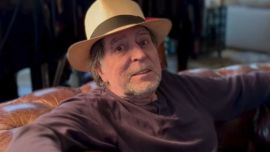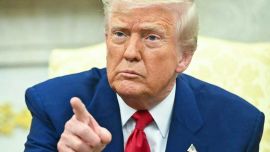Peru's under fire leftist President Pedro Castillo staved off a political crisis on Friday as the right-wing dominated Congress approved his first Cabinet.
In a bitter debate that began on Thursday, the Cabinet headed by Guido Bellido was approved by 73 votes to 50 against.
"Consequently, the question of confidence has been approved," said Maria del Carmen Alva, the opposition legislator that heads Congress.
Having survived the first big test of his presidency, that began only a month ago, 51-year-old former rural schoolteacher Castillo thanked Congress on Twitter.
"The quest for consensus allows us to govern together with the people and for the development of public policies of a social character," said Castillo.
Had the vote gone against Bellido, Castillo would have had to name a different Cabinet chief.
It would also have prolonged the state of political uncertainty that has gripped Peru since the beginning of the year, when the electoral campaign got under way.
Peru has suffered years of political upheaval and a series of corruption scandals saw three different presidents in office in a single week last November.
Seven of the country's previous 10 leaders have either been convicted or are under investigation for graft.
Castillo's appointment of Bellido, an electronic engineer with no experience in public office, was controversial.
Peruvian media claim Bellido was investigated by prosecutors for an alleged "apology for terrorism" over statements made shortly after taking up his seat last month.
Most of the legislators that voted against the Cabinet were from the ultraconservative Popular Renovation party, and the right-wing populist Popular Force of Keiko Fujimori, who Castillo defeated in a presidential runoff.
During the two-day debate, opposition legislator Eduardo Castillo urged colleagues to vote against "a highly questionable Cabinet, linked to front groups of the Shining Path" Maoist guerrillas that carried out attacks between 1980 and 2000.
Pedro Castillo's detractors have tried to link him to the Shining Path, dubbed a "terrorist" organisation by previous governments, but he actually participated in armed rural patrols that resisted the Maoists.
by Francisco Jara, AFP





















Comments